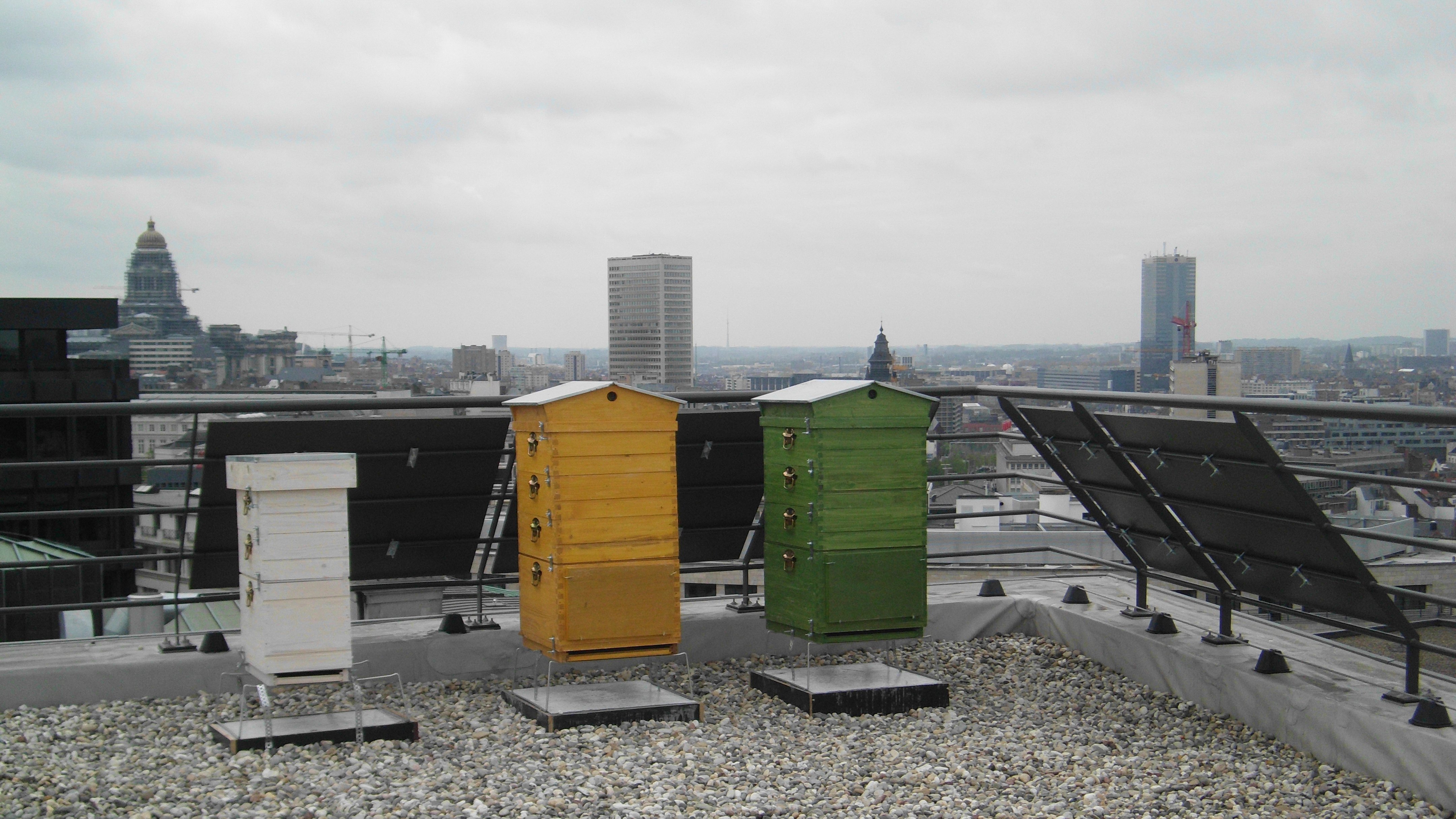BNP Paribas Fortis has recently placed beehives on the roof of the Chancellerie/Kanselarij building situated in the heart of Brussels, which is the most ‘sustainable’ of the Bank’s premises.
This initiative will both help to protect the bee population and also foster biodiversity in the Belgian capital.
Bees play an indispensable part in the pollination process that enables plants to reproduce, and hence also an important role in the human food chain. However, intensive use of insecticides and pesticides is now threatening their existence to such an extent that the cultivation of vegetation which is vital for life on earth could be seriously disrupted.
Nevertheless, the urban ecosystem constitutes a favourite habitat for these industrious little creatures. The use of pesticides and insecticides is much more limited in cities than in rural areas, the temperature tends to be milder, and towns also offer a more diverse range of flowering plants. Accordingly, colonies of bees are now increasingly finding refuge in hives placed on city rooftops and since late April, the roof of the bank’s Chancellerie/Kanselarij building has been playing host to two more of them. Town honey is generally of excellent quality. The floral diversity – as many as 250 different strains of pollen – to be found in city parks and gardens is a real boon for the bees, which are nowadays faced with a declining range of biodiversity in the countryside.
“The installation of these beehives is all part of BNP Paribas Fortis’ civic initiatives,” underlined Peter Heck, who is in charge of the project. “They have found a home on the roof of the bank’s most environmentally sustainable premises. The Kanselarij/Chancellerie building has been entirely renovated, with a ‘green roof’, planted with grass over 700 m², plus solar collectors.The building also uses geothermal energy for both heating and cooling. In addition, rainwater is collected and recycled throughout the building.”
“Some of our ‘Chancellerie/Kanselarij’ honey produced by these hives will be used as part of our internal communication campaigns,” added Peter, explaining: “We think it’s important to make colleagues more aware of the need for nature protection and of the crucial role played by bee populations in the biodiversity of the urban environment.”
More information on beekeeping can be found, amongst others, on the website of SRABE, the Brussels and District Royal Apiculture Society (in French) and of 'T Brabantse Bieke (in Dutch).
